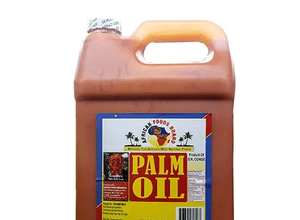At Obafemi Awolowo University, Prof Kehinde Owolarafe, the head Department of Agriculture and Environmental Engineering of lle-Ife Osun State, has warned palm oil producers, distributors, marketers and retailers against adulteration of the product, as this may endanger the health of the users.
He stated this at a meeting organised by the Standards Organisation of Nigeria (SON) with the theme ‘Promoting Palm Oil Value Chain via Standardisation’ in Osogbo, Osun State recently.
The country imports about 1 million metric tonne of the product to complement the local production, the Prof stated.
He said, “Between 1920 and 1960, Nigeria was the leading producer and exporter of palm oil. Sadly, Indonesia and Malaysia now lead in the production of palm oil in the whole world.
“Though there has been an increase in palm oil production in the last few years, Nigeria at present imports palm oil to the tune of about one million metric tonnes to supplement the local production to meet the high demand.
“Indonesia and Malaysia produce tens of million tonnes, while Nigeria is still struggling to reach two million tonnes. Currently, Nigeria, which occupied the premier position, has dropped to the fifth position.”
Prof kehinde said, factors such as declining productivity of oil palm plantations due to old age, lack of appropriate technologies for palm fruit processing, and unfavourable government policies regarding agriculture in general, among others, contributed to the country’s low production of palm oil.
He asked the Producer to improve the quality and quantity of palm oil production in the country to meet the international standards for export.
Ifeanyi Okeke, the Director -General of Standard Organisation of Nigerian ably represented by Ethan Talatu, the agency’s Director of Southwest, disclosed that a group was organized to create awareness for all stakeholders, particularly the palm oil producers, distributors, marketers, retailers and users to produce product that would meet up with the standard set by the government.
